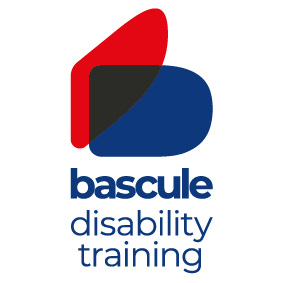How universities can improve their support for students with disabilities

Imogen Steele recently joined the Bascule team as a Marketing and Media Assistant. Here she provides us with a blog that describes her experiences at university, explaining how her the shortcomings of the uni made life as a student with a disability very hard...
With the school system often failing students with additional needs, the number of individuals with physical disabilities reaching higher education has historically been low. For this reason, I believe that universities have had little need to establish support provisions for disabled students. While it must be recognised that most universities provide excellent support for those with specific learning disabilities, like dyslexia, physically disabled students are often left to fend for themselves. I myself have cerebral palsy quadriplegia and graduated last year from a Russell Group University with a first-class honours’ degree. In this article I suggest a few reasonable adjustments that would have been extremely helpful during my degree.
A timetable where all my classes would be based on one campus would have been great. This was an adjustment that my university assured me would be put into place throughout my entire degree. However, my timetable in every year of my degree was split between various university sites despite my persistent efforts at the start of every semester to remind timetabling of my needs. At one stage, I had to get a taxi twice daily from one campus to another. Furthermore, a timetable that would have allowed me to get from one class to another without being late would have been much appreciated and was indeed promised. Yet in one semester I found myself with only ten minutes to travel between campuses from one lecture to another. Easily accessible rooms with adjacent disabled parking would have also made the practicalities of accessing my lectures a great deal less stressful.
A student support service which was permitted to provide practical support to physically disabled students would have made my university experience more straightforward. As it turned out I was required to hire a personal assistant to meet all of my support needs, as the support staff at my university, like at most universities across the UK, were prohibited from pushing a lightweight manual wheelchair due to health and safety regulations. While the university were more than willing to provide a notetaker for lectures, these notetakers would meet students at the door of the lecture theatre, a practice which was entirely useless if like me, you needed help carrying your bag and books to the lecture room. There was also lack of contingency planning, as when the University support staff assigned to me for the morning called in unwell, I was left to get in and out of a lecture theatre on the seventh floor of a building and abandoned without support for five hours, causing me to miss my afternoon lectures.
The issuing of a university library card to my personal assistant would have proved an invaluable reasonable adjustment. This would have impacted the ease with which I could access the library as my PA would be able to collect books for me when I was unable to get onto campus due to my health condition. Whilst the University were not resistant to the idea of allowing my personal assistant to possess a library card, they informed me that they did not have the technical infrastructure to issue a card to an individual who was neither a student or staff member.
I would like to have seen accessible accommodation that was integrated in university halls. As the accessible halls I toured when looking around various universities resembled disabled ghettos, with most of the accessible accommodation situated in a few flats close to each other. While, of course, there are practical considerations when building accessible accommodation such as wet rooms, this placement of the accessible rooms exemplifies the sheer discrimination that disabled students have to endure. There would be outcry if students were allocated accommodation based on ethnicity or sexual orientation, yet it is deemed acceptable to group all those with physical disabilities together.
A medical exemption form for extensions that did not require me to submit duplicates of the same hospital letter explaining how I could not complete university work the day after taking a specific medication due to its side effects each time I applied for an extension would have made the process easier. One would assume it would be possible for the university to keep such a letter on file.
However, while my university displayed a reluctance to put into place reasonable adjustments to support disabled students at an institutional and administrative level, I feel that it is important to recognise that my lecturers were extremely supportive and accommodative in regards to my needs. This was exemplified to me as at one stage during my degree my lecturers tried persistently to change the lecture theatres that they taught in so I would not have to go from one campus to the other. Moreover, the head of faculty acted as my personal academic tutor and was extremely helpful in securing my support needs whether that would be notetaking, exam arrangements or medical extensions.
Nevertheless, I hope this article outlined reasonable adjustments that universities can and should put in place to support students with disabilities. Indeed, these adjustments, if successfully implemented, would have made my time at University a lot more enjoyable.
Imogen Steele, Marketing and Media Assistant, Bascule Disability Training.
no images were found



